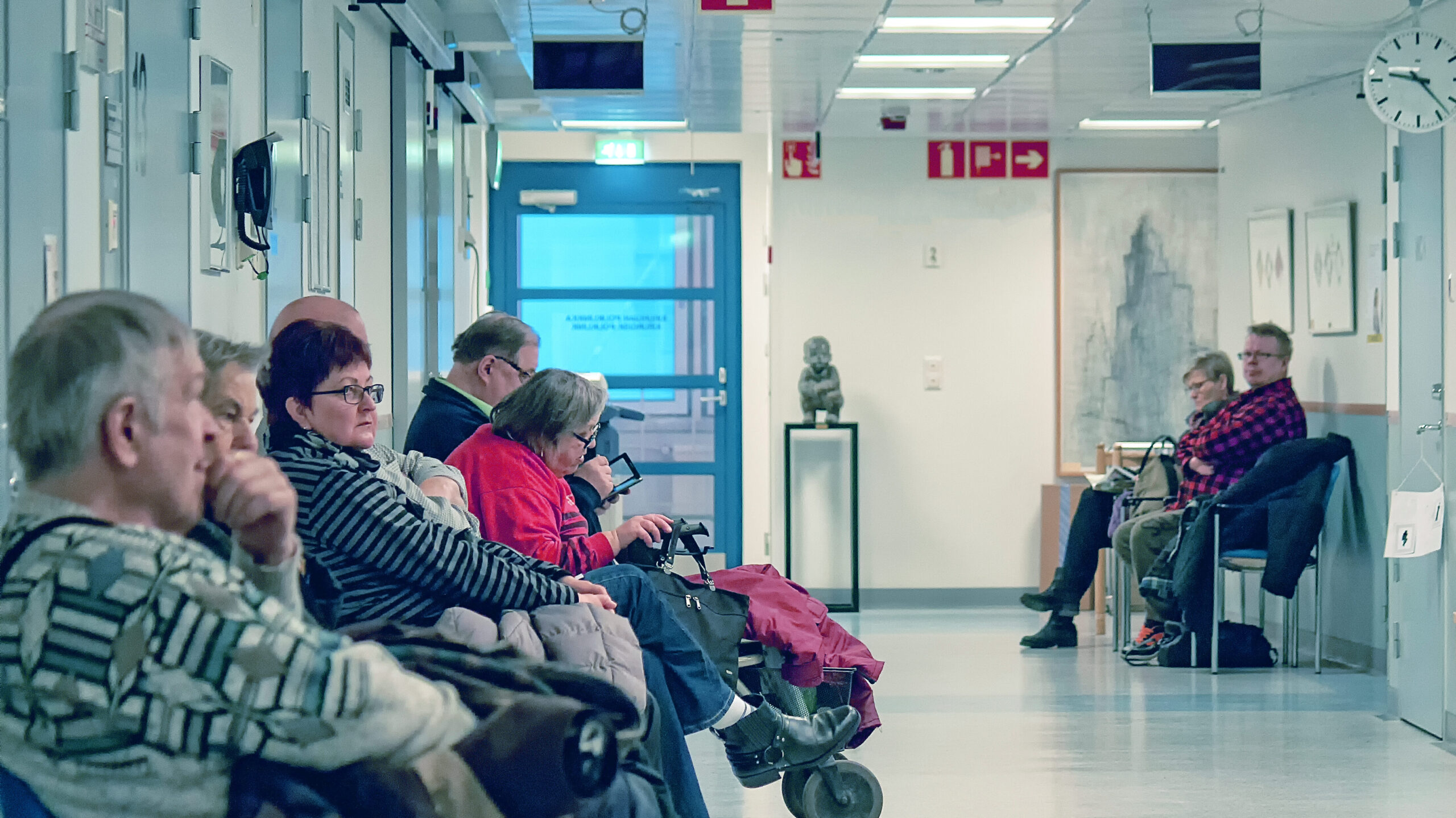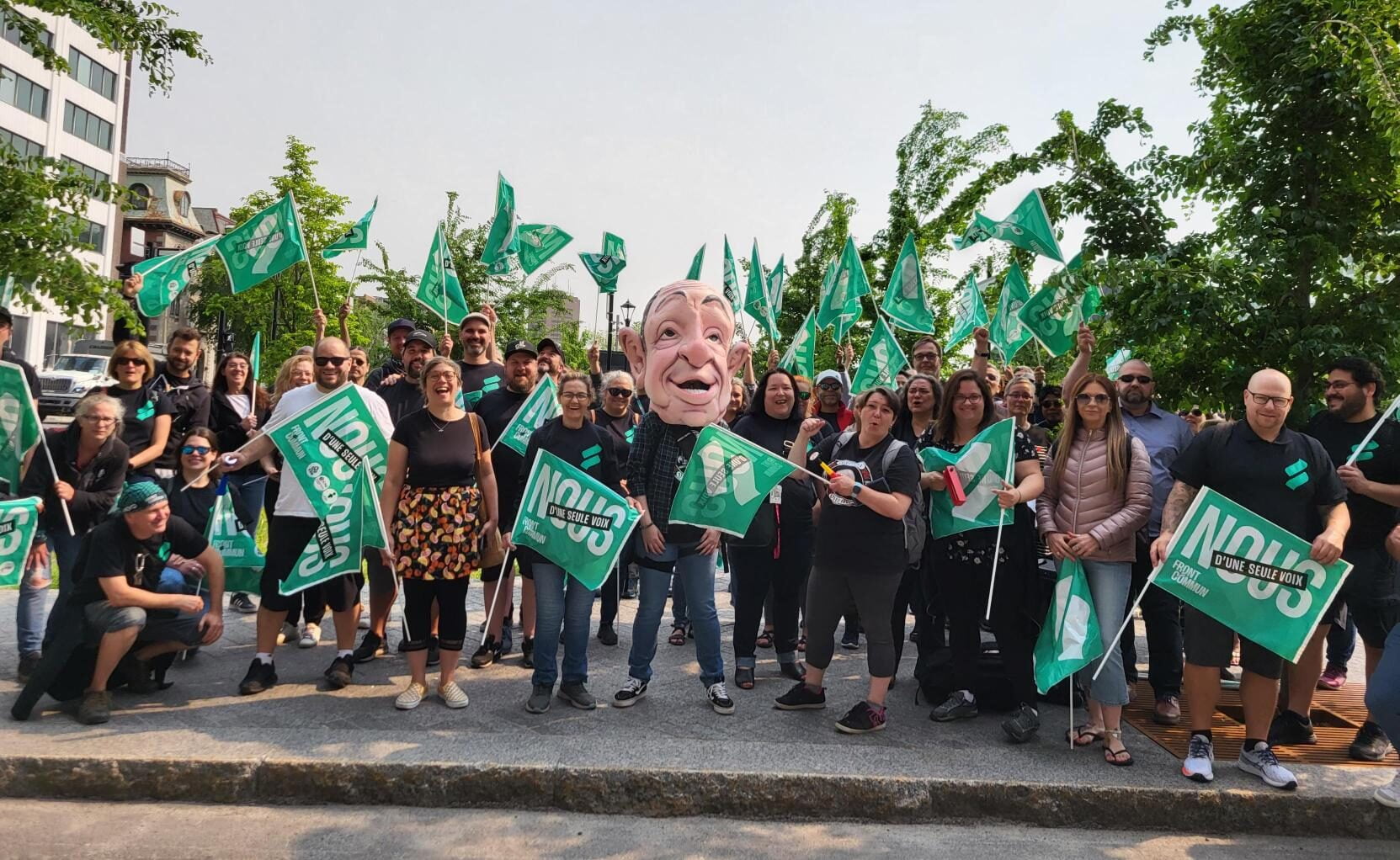With more than 420,000 members, the "Front commun des syndicats" (United Front of Unions in Quebec) representing employees in Quebec's public sector, in negotiations for almost a year and without a collective agreement since March 31 2023, is organizing a major demonstration of strength on September 23 in Montreal.
Under the banner of a "major national demonstration", the unions are calling on "all those who are directly or indirectly affected, who know workers in our networks, who want to support our struggle and demonstrate the importance they attach to public services" to take part in this mobilization.
Referring to the 1972 labour uprising, the alliance between the Confédération des syndicats nationaux (CSN), the Centrale des syndicats du Québec (CSQ), the Fédération des travailleurs et travailleuses du Québec (FTQ) and the Alliance du personnel professionnel et technique de la santé et des services sociaux (APTS) is issuing a warning to the government. The organization of this demonstration, which the United Front sees as historic, is intended as a prelude to a possible general strike, which would be called if the CAQ categorically refuses to correct the consequences of "decades of austerity, cuts and wage moderation".
With around one in ten workers in the province directly involved in this conflict, the outcome of this battle will have significant consequences for the state of the balance of power between all workers and employers in Quebec.
The consequences of the policies being criticized include not only the deterioration of working conditions for public-sector employees, but also the deterioration of infrastructures, the quality of services and the administrative apparatus. Virtually every government over the past 30 years has implemented numerous dubious or disastrous reforms.
Under the Parti Québécois, between 1994 and 2001, the "ambulatory shift" by Jean Rochon, followed by the Clair commission under Pauline Marois, and then the adoption in 2002 under François Legault of a special law forcing doctors to work in emergency or face heavy fines. The Quebec Liberal Party was not to be outdone, with the creation in 2003 of the CSSS (healthcare and social services centres) under Philippe Couillard, who weakened the CLSCs (local community service centres) and CHSLDs (residential and long-term care centres); Yves Bolduc in 2008, who pushed hospitals to adopt the "Toyota method"; and finally Gaétan Barrette, who centralized all public health and social services between 2014 and 2018, creating the CISSS and CIUSSS ("integrated" health and social services centres).

Thus, the last 30 years seem to be a constant and costly administrative shuffle, without ever investing in infrastructure and personnel that would concretely solve the system's problems. With the Coalition Avenir Québec, history is repeating itself, as the Healthcare and Social Services Minister's current reform and the Education Minister's creation of school service centers, adopted without the possibility of debate, are received with much skepticism and criticism. Combined with high inflation, a context similar to the decade of 1970, this could lead to an explosive cocktail.
While the United Front of 1972 may seem a long way off, it should be remembered that the number of workers involved in that movement is proportionally similar to that of today. Although the situation is different, the numbers are sufficient to have a significant impact. Not to mention that the CAQ has recently angered other groups with its bill attacking tenants' rights or its handling of the claims of the Manawan native community, 250km north of Montreal.
- Us Against the State: A Documentary on the United Front
- Quebec healthcare workers still without a contract
- Quebec unionized nurses reject “disrespectful” proposed deal
- “We could have fought together for better,” says FIQ member
- 1972, the Year Workers Shook the State
- Privatization in the name of “efficiency”
- Strike mandates accumulate with overwhelming support
- An Education Reform Deaf to the Key Issues
- Québec government improvises solutions
- One in ten workers soon on strike?
- 100,000 workers in the street: “they’ve had enough”
- It’s Halloween for Quebec’s Public Employees, Or at Least for Some
- United Front workers determined to keep up the fight
- FAE to call unlimited strike on November 23
- A historic movement, “we’ve never seen anything like it”
- The CAQ cares about kids (or so it says)
- Government treatment fuels “our indignation and will strengthen our mobilization”
- Superior Court Violates Teachers’ Right to Strike
- “Legault and all the others are destroying Quebec as we know it”


